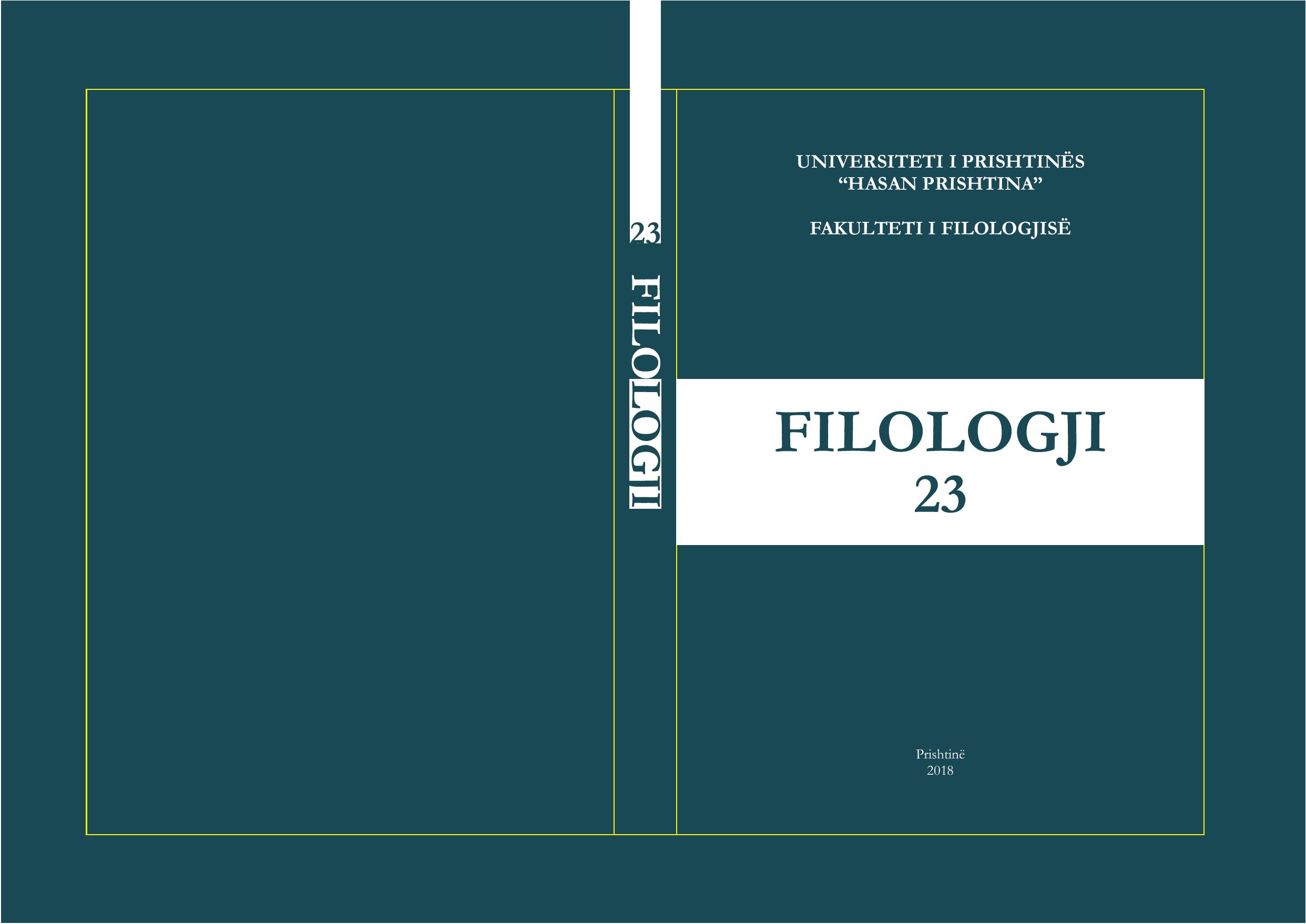Aspekte të kategorisë së vdekjes në tragjeditë e Shakespeares
Aspects of the categories of death in the tragedies of Shakespeare
Author(s): Besim RexhajSubject(s): Other Language Literature
Published by: Univeristeti i Prishtinës, Fakulteti i Filologjisë
Keywords: death; Shakespeare; tragedy;
Summary/Abstract: Whether it is an issue of murder or of suicide, whether it is an individual or a collective murder between opponent groups or communities, death as a complex reality is projected more densely as a reflex and as reality of life, especially in dramatic literature, due to the structure of the genre, i.e. tragedy, or due to the greater expressive and modelling opportunities of its complexity, i.e. as drama and dramaticity, thus forming a separate chapter where death is an almost inevitable condition of the literary work. In Shakespeare's universe, death forms a separate world, a sui generis world, which through its complexity and its dynamics makes one face confrontations and challenges of identification and then of eventual interpretation. No other playwright has produces such a large number of deaths, perhaps due to the great number of his tragedies or due to the great number of the characters within these tragedies; no other playwright has produced words in which so much blood is spilled, where death is summoned so often and where murder appears in front of the reader or the audience in all its cruelness, its coldness, its horror and its pathology brought forth on stage, in all its macabre colors, full of its hellish sounds and all o fits unimaginable paradoxes. Further, this study emphasized that death, whether it is death in Hamlet, or in Macbeth, or in Richard III, in Julius Caesar or in Othello, results and is realized as a consequence of influence, ambition, revenge, political necessity or psychological necessity, compensation for the insufficiency of personality, and as a cause and effect of the wish for power, for privilege, for position and for having control on others. Naturally, death as murder and suicide in almost all of Shakespeare's tragedies has its particular motives and dynamics, nevertheless, it has a common designator which consists of ambition, need, influence, revenge, political defense as political war or as war for power, and when it comes to love, those elements are jealousy, deception and psychoaffective self-deception. The various modalities of death (death as a philosophical, moral and metaphysical category, death as the result of ambition and of the insufficiency of personality i.e. death as the result of the attempt for the compensation of the inferiority complex, death as placed in the context of political dynamics and the dynamics of political influence as well as the consequences and mysteries of death) form not only the themes and motifs and the ideological and philosophical aspects inherent in Shakespeare's works, but also some of the dimensions and the main unchanging factors in his dramaturgy.
Journal: FILOLOGJI
- Issue Year: 2018
- Issue No: 23
- Page Range: 65 - 74
- Page Count: 10
- Language: Albanian

